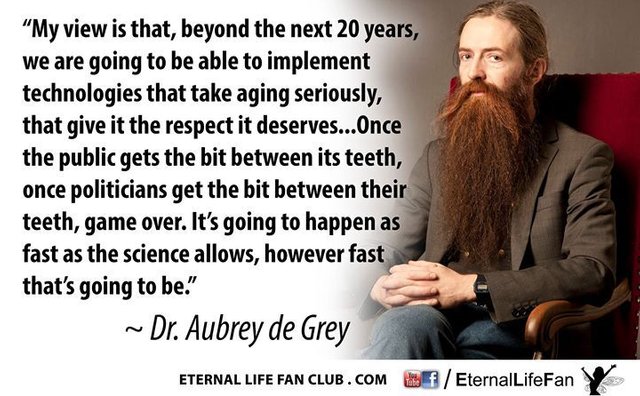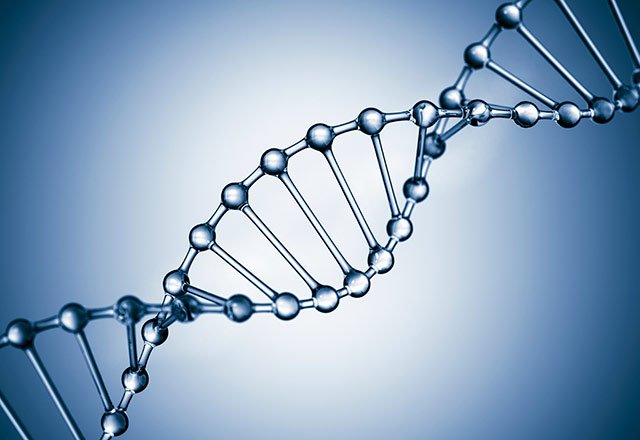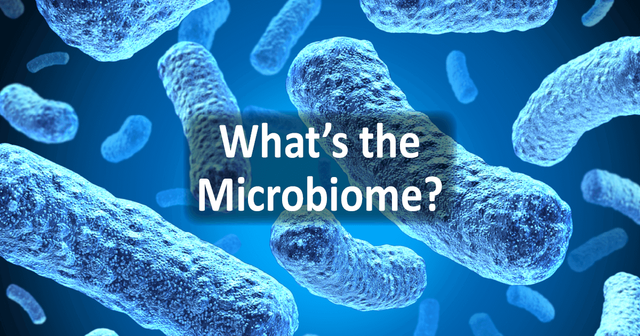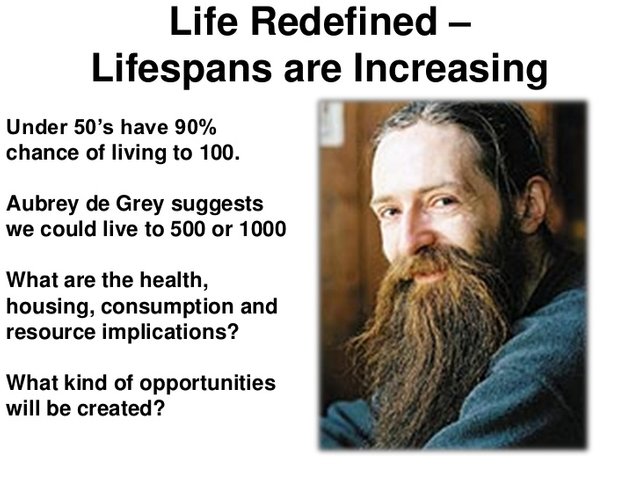Would you want to live forever?
I have always been fascinated by health and the medical industry. One thing that I never understood though was why so little attention was paid to staying healthy. When you think of medicine it is always after the fact. Over the last few years more and more push for wellness and healthy living in general are starting to come to light but most serious medical research is done on treating disease and not preventing them. That always seemed counter intuitive to me. Why would you want to wait until it happens then stop it. It could be too late and sometimes is too late to stop it then. Obviously that is way easier said then done.
DNA was initially the answer. The human genome project set out to map our genetics and give us the fundamental makeup of us as humans. Once we have done that we can pinpoint the genetic variants that caused disease and then learn how to remove or prevent them from there. It seems when you start asking question, especially in science, you don't normally just get answers, you get a lot more questions. Studying biology at the molecular scale lead to epigenetics which can be roughly defined as factors that impact our genes and gene expression. So now what was thought of as something fixed, turned out to be a lot more complicated. It is never as simple as nature (Biology) vs nurture (Environment). The answer is pretty much always, its a combination. How much and what factors. Theses are more the questions that come up the more we learn.
The environment plays a lot bigger role than originally thought of when the human genome project was first pursued. Part of the environment that plays a role in disease are microorganisms. We knew about all these microorganisms that were related to disease but we didn't realize how interconnected we are with them. They are a part of us. Every person is an ecosystem of these little guys. Some benefit us, some harm us and some are just there. It was originally thought that our microorganisms out numbered our human cells at a ratio of 10:1. That has been thoroughly debunked with the ratio now thought to be closer to a 1:1. Still we are as much human as we are our microbiome. They can help fend off disease or can cause it. So much research is being done in all these areas as we speak. New discoveries that could have profound impact on disease are being made all the time. But, what about aging? Is that a disease? Can aging even be prevented?
One researcher that is devoting his life's work to this area of gerontology is Dr. Aubrey De Grey. He is the chief science officer at SENS Research Foundation. He states that there he thinks aging is completely preventable. He claims that in the future we will be able to completely fend of the aging process and give control to when we die. He relates all diseases to the aging process in some fashion. If we can prevent aging we can prevent disease. He more specifically identifies at least 7 types of aging damage (1,2) that if we can learn to manage we can stop disease. They are
De Grey proposed the following types of aging damage:
- Mutations – in Chromosomes causing cancer due to nuclear mutations/epimutations:
These are changes to the nuclear DNA (nDNA), the molecule that contains genetic information in eukaryotes, or to proteins which bind to the nDNA. Certain mutationscan lead to cancer, and, according to de Grey, non-cancerous mutations and epimutations do not contribute to aging within a normal lifespan, so cancer is the only endpoint of these types of damage that must be addressed. - Mutations – in Mitochondria:
Mitochondria are components in eukaryotic cells that are important for energy production. They contain their own genetic material, and mutations to their DNA can affect a cell's ability to function properly. Indirectly, these mutations may accelerate many aspects of aging. - Junk – inside of cells, aka intracellular aggregates:
Cells are constantly breaking down proteins and other molecules that are no longer useful or which can be harmful. Those molecules which can't be digested simply accumulate as junk inside of cells. Atherosclerosis, macular degeneration and many kinds of neurodegenerative diseases (such as Alzheimer's) are associated with this problem. - Junk – outside of cells, aka extracellular aggregates:
Harmful junk protein can also accumulate outside of cells. The amyloid senile plaque seen in the brains of Alzheimer's patients is one example.(4) - Cells – too few, aka cellular loss:
Some of the cells in bodies cannot be replaced, or can be replaced only very slowly – more slowly than they die. This decrease in cell number causes the heart to become weaker with age, causes Parkinson's disease, and impairs the immune system. - Cells – too many, aka cellular senescence:
This is a phenomenon where some cells can no longer divide, but also do not die and let others divide. They may also do other things that they're not supposed to, like secreting proteins that may be harmful. Cell senescence has been proposed as cause or consequence of diabetes mellitus type 2.(5) Immune senescence is also caused by this.(6) - Extracellular protein crosslinks:
Cells are held together by special linking proteins. When too many cross-links form between cells in a tissue, the tissue can lose its elasticity and cause problems including arteriosclerosis and presbyopia.(3,7)
Once these are figured out we will be able to get 'preventative maintenance' done on our bodies just like any machine can have done. This will result in humans living indefinitely and potential having complete control over when they can kick the proverbial bucket. Now as of right now we are way off from making these type of advancements. Dr. De Grey has mentioned in his talks that he feels that some people today might be able to get to a point where they can live indefinitely. Children will live up to a point where technology is great enough to start slowing the aging process enough to buy them more time. This will in turn get them to a point where the technology becomes available to stop/ reverse the aging process all together. Pretty crazy to think about. Here is a link to one of his TEDx talks he gave on this topic.
What do you think? Is it possible? Will you live long enough to get this choice? Would you even want to have this as an option?
Thanks for reading and let me know your thoughts !
References
Image 1
Image 2
Image 3
Image 4
Reference 1 - Wikipedia for Aubry de Grey
Reference 2 Wikipedia on Strategies for Engineered Negligible
Reference 3 Hang in There: The 25-Year Wait for Immortality interview with LiveScience
Reference 4 "PTN interviews Dr. Aubrey de Grey, researcher of anti-aging regenerative medicine". PlanetTech News. Retrieved 3 August 2015.
Reference 5 Testa, Roberto; Antonio Ceriello (2007). "Pathogenetic Loop Between Diabetes and Cell Senescence". Diabetes Care. 30 (11): 2974–2975. doi:10.2337/dc07-1534. Retrieved 29 December 2012
Reference 6 Persistent DNA damage signalling triggers senescence-associated inflammatory cytokine secretion
Reference 7 Aubrey de Grey (22 February 2010). Aubrey de Grey – In Pursuit of Longevity. Singularity University.




Hello @kirk-gosik,
It gives us pleasure to inform you that this post have been upvoted by Project Better.
The Mission of Project Better is to reward posts have many votes from Minnows but earn pennies.
Your payout is $0 before we vote on your post.
Learn more about the Project Better here!
We hope to see you continuing to post some great stuff on Steemit!
Good luck!
~BETTER~
Wow, I'm flattered! Thank you!
nice post, resteemed :)
Glad you enjoyed it and thank you!
Hi. Nice post. I'm following you now. I also would like to put this forward for curation with SteemTrail. The only trouble is that the citation for Aubrey de Grey is a little muddy. It's fine to copy and paste when you're quoting someone, but you need to make it clearer that you're quoting. And you've left some reference numbers in there, but without their links. If you want to tidy that up and reply to me, I;ll put it forward. Here's some more info on SteemTrail https://steemit.com/health/@health-trail/introducing-health-trail-part-of-the-steemtrail-curation-initiative
Yes, that would be great! I went back through and cleaned up the citation. Let me know if more would need to be done. Thanks!
forever is a long time. i'd like to try 30,000 years first.
Haha yea I don't know about forever either. 30,000 years seems like a good point to see if another 30,000 is worth it or not. What Dr. de Grey is aiming for in his research is not necessarily making people live forever, but to give them more control over when and how they die.
Almost everyone alive wants to continue to live.
Those who do not....don't.
Suicide is easy.